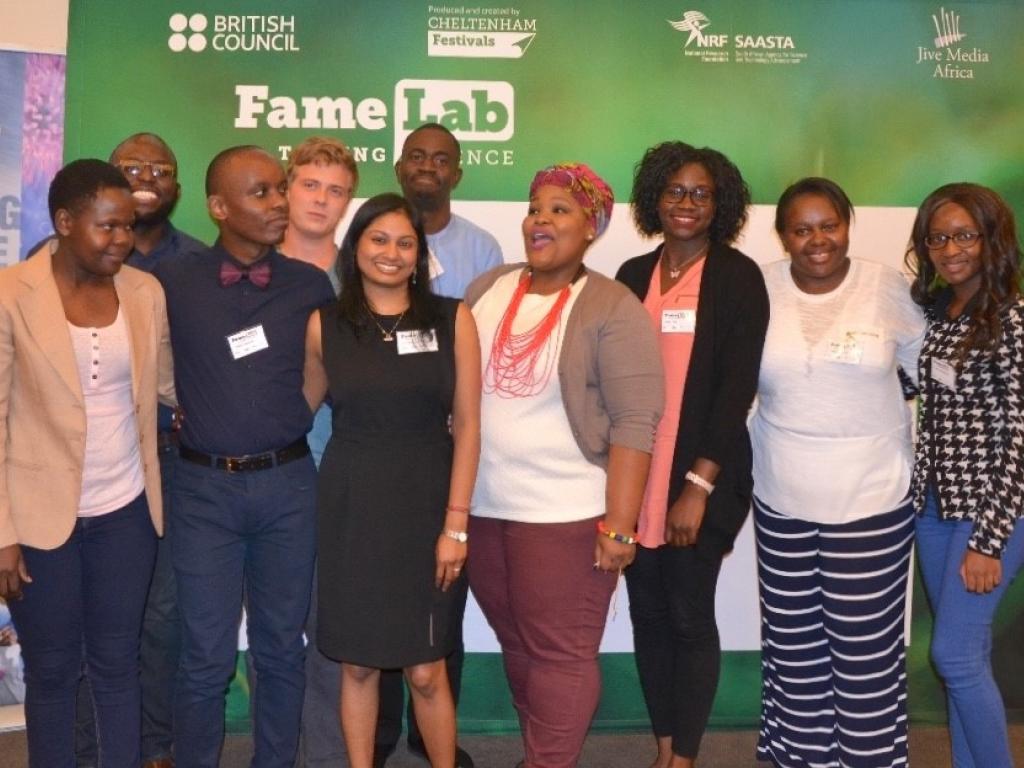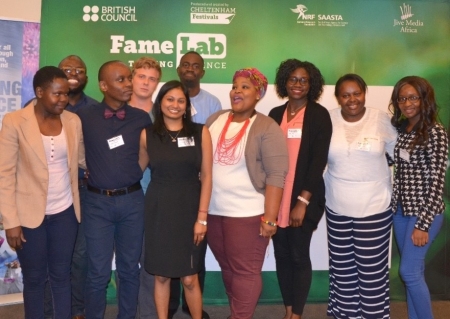Stats Lecturer represents Western Cape in Science Communication competition


Dr Sheetal Silal (third from the left in the front) together with the other finalists
FameLab has been an incredibly positive experience for me,” says Dr Sheetal Silal. “It’s helped me think about how to communicate abstract mathematical topics in a universally understood manner and has highlighted the importance of making our research known to the public.” Dr Silal, who is a senior lecturer in the Department of Statistical Sciences at UCT, will take part in the national finals on 19 April in Johannesburg. At this event she will compete against nine other competitors from around the country. The winner from the national finals will compete at the international event in the United Kingdom. She will be presenting her research on the use of mathematics and computer simulation to predict the dynamics and control of infectious diseases like malaria. Her presentation description reads, “The spread of disease and the public health response to manage them form complex systems. Mathematical modelling allows one to evaluate, among other things, the potential impact of control programmes in reducing morbidity and mortality”. Silal presented the same research at the semi-finals that were held on Friday 24 March as well as at the earlier UCT heat where she was named the runner-up. During both the semi-finals and the UCT heat, Silal competed against Dr Ursula Rohlwink, who is a post-doctoral researcher in the Division of Neurosurgery. Rohlwink was the winner of the UCT heat, having showcased her research on brain injury, from trauma or infection, and how it affects hundreds of children in South and around the world. Before Silal and Rohlwink moved onto the semi-finals and – in Silal’s case, the finals – they formed part of a larger group of UCT researchers who had competed in the university’s inaugural FameLab competition. Ten researchers competed in the UCT heat of what is labelled "the world’s biggest science communication competition". The aim is to hone researchers’ communication skills, teaching them how to make their work accessible to the broader public. In preparation for the heat, participants were over two sessions, trained in public speaking and feedback by Dr Jane English, head of the Professional Communication Studies and Services Department. After these sessions, participants joined FameLab organiser, the British Council, for one more workshop. Here, the Council’s Anisa Khan and Walters Nfortoh briefed the group on FameLab specifics such as the three-minute time limit and the permission to use props. The competition took place the following day and included, on the invitation of the British Council, three young researchers from the Cape Peninsula University of Technology. Dr Gaëlle Ramon, researcher development manager in the Research Office who organised the UCT heat, said FameLab was a fantastic opportunity to showcase the work achieved by young researchers. She says these talks should be given more exposure as they make science accessible to the broader public, and promote exciting careers. “At UCT, we particularly asked our researchers to bring the labs to the communities. We wanted them to explain how their research can have an impact on society and make everyday life better for real people.”
Story by Carla Bernardo. Photos supplied.
